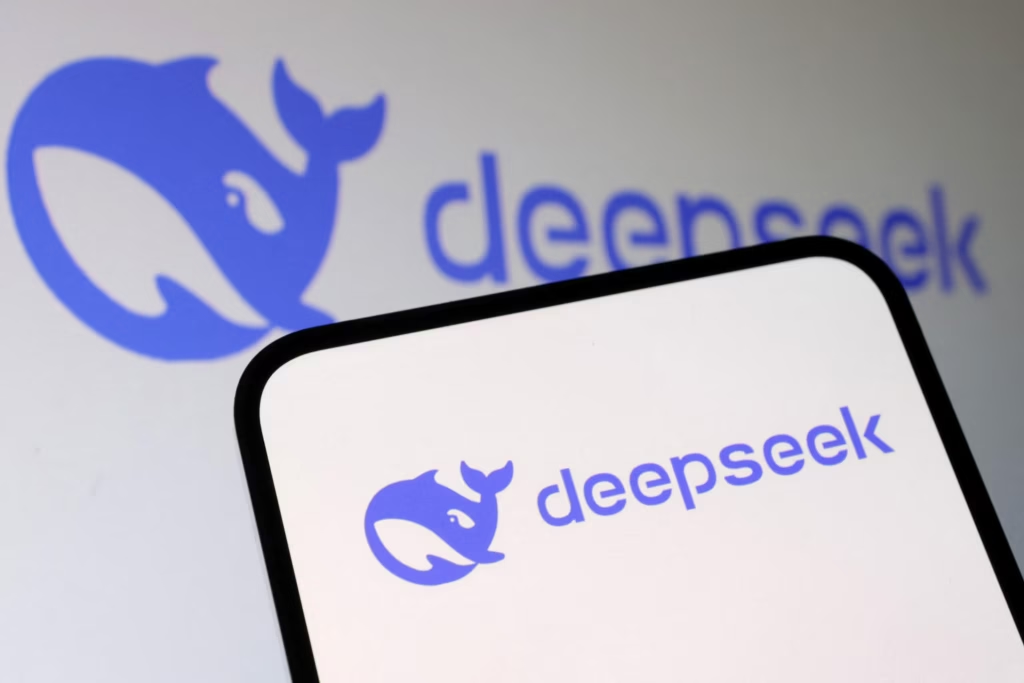As of now, DeepSeek is a privately held Chinese artificial intelligence (AI) startup and is not publicly traded. Therefore, there is no available share price or stock market analysis for DeepSeek.
However, DeepSeek has recently garnered significant attention in the tech industry due to its advancements in AI technology. Here’s a point-by-point overview of the situation:
- Introduction of DeepSeek’s AI Model:
- DeepSeek unveiled a new AI model that rivals existing models from major U.S. companies like OpenAI and Meta. Notably, DeepSeek achieved this using less advanced hardware and at a fraction of the typical development costs.
- Impact on U.S. Tech Stocks:
- The emergence of DeepSeek’s cost-effective AI model has led to significant declines in the stock prices of major U.S. tech companies. For instance, Nvidia’s shares dropped by 16.9%, and other tech giants like Microsoft and Alphabet also experienced notable declines.
- Market Valuation Concerns:
- Investors are expressing concerns that DeepSeek’s advancements could disrupt the current AI business model, which relies heavily on high-end chips and extensive computing power. This has led to a reevaluation of the high valuations of AI-driven companies.
- Global Market Reactions:
- The impact of DeepSeek’s AI model has not been limited to the U.S. European tech firms, such as Dutch chip equipment maker ASML, also saw significant declines in their stock prices.
- Industry Implications:
- DeepSeek’s approach challenges the assumption that high-quality AI models require substantial investments in advanced hardware. This development could lead to increased competition in the AI sector and potentially drive further innovation.
In summary, while DeepSeek does not have a share price due to its private status, its recent advancements have had a profound impact on the tech industry, influencing investor perceptions and affecting the stock prices of established tech companies.
DeepSeek, OpenAI, and Meta are prominent players in the artificial intelligence (AI) landscape, each contributing significantly to the development of large language models (LLMs). Here’s a comparative analysis of these organizations:
1. Company Overview:
- DeepSeek:
- A Chinese AI startup based in Hangzhou, established in 2023.
- Gained attention with the release of its DeepSeek-V3 model in December 2024.
- OpenAI:
- An American AI research lab founded in 2015.
- Known for developing models like GPT-3 and GPT-4o.
- Meta:
- Formerly Facebook, rebranded as Meta in 2021.
- Developed AI models such as Llama 3.1.
2. Model Parameters and Architecture:
- DeepSeek-V3:
- Contains 671 billion parameters.
- Utilizes a mixture of experts with a Multi-head Latent Attention Transformer, comprising 256 routed experts and one shared expert.
- OpenAI’s GPT-4o:
- Specific parameter count undisclosed.
- Employs a dense transformer architecture.
- Meta’s Llama 3.1:
- Features 300 billion parameters.
- Designed as a dense transformer model.
3. Training Efficiency and Cost:
- DeepSeek:
- Trained DeepSeek-V3 in approximately 55 days at a cost of $5.58 million.
- Utilized 2,000 Nvidia H800 GPUs, tailored for the Chinese market.
- Total training required 2.78 million GPU hours.
- OpenAI:
- Training costs for GPT-4o are estimated to exceed $100 million.
- Employed advanced hardware like Nvidia’s H100 GPUs.
- Training involved millions of GPU hours.
- Meta:
- Llama 3.1’s training required 30.8 million GPU hours.
- Incurred significantly higher costs compared to DeepSeek.
4. Performance and Accessibility:
- DeepSeek-V3:
- Benchmark tests indicate it outperforms Meta’s Llama 3.1 and matches OpenAI’s GPT-4o in various tasks.
- Offered as an open-source model with free access on the DeepSeek chat platform.
- API pricing is approximately 96% lower than OpenAI’s offerings.
- OpenAI’s GPT-4o:
- Demonstrates strong performance across multiple benchmarks.
- Access is primarily through paid subscriptions and API services.
- Meta’s Llama 3.1:
- Performs well in various AI tasks.
- Available for research and commercial use under specific licensing terms.
5. Market Impact:
- DeepSeek:
- The release of DeepSeek-V3 led to significant market reactions, with major tech firms experiencing substantial stock value declines.
- Surpassed ChatGPT as the top free app on the iOS App Store in the U.S.
- OpenAI and Meta:
- Both have been influential in advancing AI research and applications.
- Faced increased competition following DeepSeek’s emergence.
6. Strategic Implications:
- DeepSeek:
- Demonstrated that high-performance AI models can be developed with limited resources through innovative approaches.
- Challenges the prevailing notion that substantial financial and computational investments are necessary for leading AI development.
- OpenAI and Meta:
- Traditionally relied on significant capital expenditure and advanced hardware for model development.
- May need to reassess strategies in response to emerging cost-effective competitors.
In summary, DeepSeek’s innovative approach has enabled it to develop a competitive AI model at a fraction of the cost incurred by established players like OpenAI and Meta. This development has significant implications for the AI industry, potentially reshaping strategies and resource allocation in future AI research and development.



